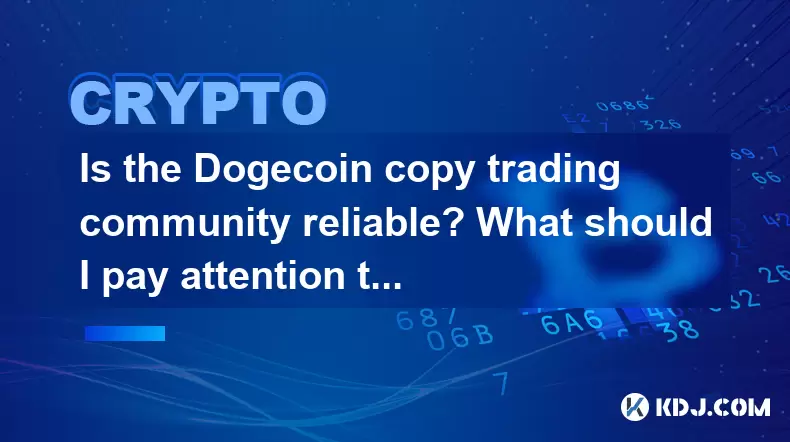-
 Bitcoin
Bitcoin $119000
-2.21% -
 Ethereum
Ethereum $4315
1.01% -
 XRP
XRP $3.151
-3.11% -
 Tether USDt
Tether USDt $0.0000
0.00% -
 BNB
BNB $808.5
-0.71% -
 Solana
Solana $175.8
-4.21% -
 USDC
USDC $0.9999
0.00% -
 Dogecoin
Dogecoin $0.2250
-3.92% -
 TRON
TRON $0.3469
1.77% -
 Cardano
Cardano $0.7818
-3.81% -
 Chainlink
Chainlink $21.47
-2.10% -
 Hyperliquid
Hyperliquid $43.30
-6.81% -
 Stellar
Stellar $0.4370
-2.84% -
 Sui
Sui $3.682
-4.40% -
 Bitcoin Cash
Bitcoin Cash $590.8
2.67% -
 Hedera
Hedera $0.2484
-5.20% -
 Ethena USDe
Ethena USDe $1.001
0.00% -
 Avalanche
Avalanche $23.10
-4.29% -
 Litecoin
Litecoin $119.2
-3.96% -
 Toncoin
Toncoin $3.409
0.90% -
 UNUS SED LEO
UNUS SED LEO $9.016
-1.29% -
 Shiba Inu
Shiba Inu $0.00001304
-3.82% -
 Uniswap
Uniswap $11.18
1.33% -
 Polkadot
Polkadot $3.913
-3.51% -
 Cronos
Cronos $0.1672
-3.08% -
 Dai
Dai $1.000
0.02% -
 Ethena
Ethena $0.7899
-4.70% -
 Bitget Token
Bitget Token $4.400
-1.23% -
 Pepe
Pepe $0.00001132
-5.93% -
 Monero
Monero $257.9
-6.44%
Is the Dogecoin copy trading community reliable? What should I pay attention to when automatically copying transactions?
The Dogecoin copy trading community has grown, but reliability varies; consider trader track records, risk management, and platform transparency when copying trades.
May 20, 2025 at 12:22 am

The Dogecoin copy trading community has grown significantly in recent years, attracting a diverse group of traders looking to capitalize on the volatile cryptocurrency market. Copy trading allows individuals to automatically replicate the trades of experienced traders, potentially increasing their chances of making profitable investments. However, the reliability of the Dogecoin copy trading community can vary, and it's crucial to approach this method with caution and due diligence. In this article, we will explore the reliability of the Dogecoin copy trading community and highlight key factors to consider when automatically copying transactions.
Understanding the Dogecoin Copy Trading Community
The Dogecoin copy trading community comprises a network of traders who share their trading strategies and allow others to copy their trades. Platforms like eToro, ZuluTrade, and NAGA offer copy trading services, enabling users to select experienced traders and automatically replicate their trades. These platforms often provide detailed statistics on the performance of traders, including their win rates, average returns, and risk levels.
When assessing the reliability of the Dogecoin copy trading community, it's essential to consider the track record of the traders you are following. Look for traders with a consistent history of profitable trades and a transparent approach to their trading strategies. Additionally, consider the size of their trading portfolio and the level of risk they are willing to take. A trader with a large and diversified portfolio may be more reliable than one with a small, concentrated portfolio.
Factors to Consider When Automatically Copying Transactions
Automatically copying transactions can be a convenient way to participate in the cryptocurrency market, but it's important to be aware of several factors that can impact your trading experience. Here are some key considerations to keep in mind:
Risk Management: Understand the risk associated with the trades you are copying. Some traders may take on high levels of risk, which could lead to significant losses. Ensure that the risk level aligns with your investment goals and risk tolerance.
Trading Fees: Copy trading platforms often charge fees for using their services. These fees can vary and may include subscription fees, performance fees, or transaction fees. Be aware of the fee structure and how it may impact your overall returns.
Market Volatility: The cryptocurrency market, including Dogecoin, is known for its volatility. This can lead to rapid price fluctuations that may affect the performance of the trades you are copying. Be prepared for potential losses and have a strategy in place to manage them.
Trader Performance: Monitor the performance of the traders you are following. If a trader's performance declines or their strategy changes, it may be necessary to adjust your copy trading settings or select a different trader to follow.
Evaluating the Reliability of Copy Trading Platforms
The reliability of the Dogecoin copy trading community is closely tied to the platforms that facilitate copy trading. When choosing a copy trading platform, consider the following factors:
Regulation and Security: Ensure that the platform is regulated by a reputable financial authority and has robust security measures in place to protect your funds and personal information.
Transparency: Look for platforms that provide detailed information about the traders you can follow, including their trading history, risk levels, and performance metrics. Transparency is crucial for making informed decisions about which traders to copy.
User Reviews and Ratings: Check user reviews and ratings of the platform to gauge its reliability and user satisfaction. Platforms with positive reviews and high ratings are generally more trustworthy.
Customer Support: A reliable copy trading platform should offer responsive customer support to help you resolve any issues or concerns you may have. Look for platforms with multiple support channels, such as live chat, email, and phone support.
Best Practices for Copy Trading Dogecoin
To maximize your chances of success when copy trading Dogecoin, follow these best practices:
Diversify Your Portfolio: Instead of copying a single trader, consider diversifying your portfolio by following multiple traders with different trading strategies. This can help spread risk and increase your chances of achieving consistent returns.
Set Stop-Loss Orders: Use stop-loss orders to limit potential losses. A stop-loss order automatically closes a trade when the price reaches a predetermined level, helping you manage risk and protect your capital.
Regularly Review Your Trades: Monitor the performance of the trades you are copying and make adjustments as needed. If a trader's performance declines or their strategy no longer aligns with your goals, consider stopping the copy trading or selecting a different trader.
Stay Informed: Keep up-to-date with market news and developments that may impact the price of Dogecoin. Being informed can help you make better decisions about which traders to follow and when to adjust your copy trading settings.
Common Pitfalls to Avoid in Copy Trading
While copy trading can be a valuable tool for participating in the Dogecoin market, there are several common pitfalls to avoid:
Over-Reliance on a Single Trader: Relying too heavily on a single trader can be risky, as their performance may decline or their strategy may become less effective. Diversify your copy trading portfolio to mitigate this risk.
Ignoring Risk Management: Failing to implement proper risk management strategies can lead to significant losses. Always set stop-loss orders and monitor the risk levels of the trades you are copying.
Chasing Past Performance: It's tempting to follow traders with a history of high returns, but past performance is not a guarantee of future success. Consider a trader's overall strategy and risk management approach when deciding whether to copy their trades.
Neglecting to Review and Adjust: Copy trading is not a set-and-forget strategy. Regularly review the performance of the trades you are copying and make adjustments as needed to ensure your investment aligns with your goals.
Frequently Asked Questions
Q: Can I copy trade Dogecoin on any platform?
A: Not all platforms support copy trading for Dogecoin. Ensure that the platform you choose specifically offers copy trading for Dogecoin and has a selection of traders to follow.
Q: How do I know if a trader is reliable?
A: Look for traders with a consistent track record of profitable trades, transparent trading strategies, and a diversified portfolio. Additionally, consider their risk levels and how they align with your investment goals.
Q: What should I do if the trader I am copying starts performing poorly?
A: If the trader you are copying starts performing poorly, consider stopping the copy trading and selecting a different trader to follow. Regularly review the performance of the trades you are copying and make adjustments as needed.
Q: Are there any fees associated with copy trading Dogecoin?
A: Yes, copy trading platforms often charge fees for using their services. These fees can include subscription fees, performance fees, or transaction fees. Be aware of the fee structure and how it may impact your overall returns.
Disclaimer:info@kdj.com
The information provided is not trading advice. kdj.com does not assume any responsibility for any investments made based on the information provided in this article. Cryptocurrencies are highly volatile and it is highly recommended that you invest with caution after thorough research!
If you believe that the content used on this website infringes your copyright, please contact us immediately (info@kdj.com) and we will delete it promptly.
- Arc Blockchain: Circle's Layer-1 Play Amidst $428 Million Loss
- 2025-08-12 20:30:13
- XRP Price: Riding the Bull Cycle Wave or Hitting a Wall?
- 2025-08-12 20:50:12
- Cloud Mining in 2025: Chasing Passive Income and High Returns
- 2025-08-12 20:30:13
- Solana Price, Meme Coins, and 100x Gains: What's the Hype?
- 2025-08-12 20:50:12
- Japan, Bitcoin, and Treasuries: A New Era of Corporate Finance?
- 2025-08-12 18:30:12
- Bitcoin Bull Market: Decoding the Indicators for the Next Big Move
- 2025-08-12 18:30:12
Related knowledge

How to purchase Aragon (ANT)?
Aug 09,2025 at 11:56pm
Understanding Aragon (ANT) and Its PurposeAragon (ANT) is a decentralized governance token that powers the Aragon Network, a platform built on the Eth...

Where to trade Band Protocol (BAND)?
Aug 10,2025 at 11:36pm
Understanding the Role of Private Keys in Cryptocurrency WalletsIn the world of cryptocurrency, a private key is one of the most critical components o...

What is the most secure way to buy Ocean Protocol (OCEAN)?
Aug 10,2025 at 01:01pm
Understanding Ocean Protocol (OCEAN) and Its EcosystemOcean Protocol (OCEAN) is a decentralized data exchange platform built on blockchain technology,...

How to invest in Kyber Network Crystal v2 (KNC)?
Aug 12,2025 at 05:21pm
Understanding Kyber Network Crystal v2 (KNC)Kyber Network is a decentralized liquidity hub built on the Ethereum blockchain that enables instant token...

Where can I buy UMA (UMA)?
Aug 07,2025 at 06:42pm
Understanding UMA and Its Role in Decentralized FinanceUMA (Universal Market Access) is an Ethereum-based decentralized finance (DeFi) protocol design...

What exchanges offer Gnosis (GNO)?
Aug 12,2025 at 12:42pm
Overview of Gnosis (GNO) and Its Role in the Crypto EcosystemGnosis (GNO) is a decentralized prediction market platform built on the Ethereum blockcha...

How to purchase Aragon (ANT)?
Aug 09,2025 at 11:56pm
Understanding Aragon (ANT) and Its PurposeAragon (ANT) is a decentralized governance token that powers the Aragon Network, a platform built on the Eth...

Where to trade Band Protocol (BAND)?
Aug 10,2025 at 11:36pm
Understanding the Role of Private Keys in Cryptocurrency WalletsIn the world of cryptocurrency, a private key is one of the most critical components o...

What is the most secure way to buy Ocean Protocol (OCEAN)?
Aug 10,2025 at 01:01pm
Understanding Ocean Protocol (OCEAN) and Its EcosystemOcean Protocol (OCEAN) is a decentralized data exchange platform built on blockchain technology,...

How to invest in Kyber Network Crystal v2 (KNC)?
Aug 12,2025 at 05:21pm
Understanding Kyber Network Crystal v2 (KNC)Kyber Network is a decentralized liquidity hub built on the Ethereum blockchain that enables instant token...

Where can I buy UMA (UMA)?
Aug 07,2025 at 06:42pm
Understanding UMA and Its Role in Decentralized FinanceUMA (Universal Market Access) is an Ethereum-based decentralized finance (DeFi) protocol design...

What exchanges offer Gnosis (GNO)?
Aug 12,2025 at 12:42pm
Overview of Gnosis (GNO) and Its Role in the Crypto EcosystemGnosis (GNO) is a decentralized prediction market platform built on the Ethereum blockcha...
See all articles

























































































